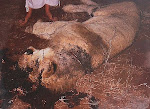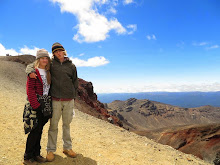
Botswana has had numerous difficulties with the poaching of elephants for bushmeat and ivory trade, but recent studies have shown that the Kori Bustard bird has also been the target for poaching and export, leaving them a threatened species. The Kori Bustard- the largest Bustard in sub-saharan Africa- is a preferred meat for local consumption. The locals set up snares to trap the birds for tribal elders to eat in some regions, while in other regions they may be eaten by any people from the tribes where they simply shoot them with guns. The birds are also being encroached upon because of overgrazing of domesticated animals belonging to both tribes and more developed areas of modern society. To add to the threat of poaching, the Kori Bustards are smuggled alive or dead across the border to South Africa and sold for exotic meats and pet trade to the rich in and out of Africa in boxes up to 10 at a time. For more information about the poaching of birdlife in Botswana or questions on how you can help, please consult the Disney Wildlife Conservation Fund or the Global Environment Facility/Small Grants Programme who assisted with the funding of this study or visit http://www.birdlife.org/news/news/2005/11/kori.html .
For personal inquiry, contact blb@birdlifebotswana.org.bw for a final report for this cause. Thank you for your time and assistance.







